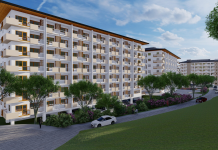
With the COVID-19 pandemic continuing to disrupt life in the Philippines, a set of measures has been approved by the government to provide relief to the public. These include a new grace period for home loan and rent repayment.
The Bayanihan to Recover as One Act was signed into law last week by President Rodrigo Duterte. The Philippines has been hit hard by COVID-19 with more than 266,000 total cases recorded in the country.
Home loan holders are eligible for a 60-day repayment grace period under the act. All banks, financing companies, lending companies, real estate developers and other public and private financial institutions are required to provide the relief on any loan payments due between now and December 31.
Loans disbursed by the Home Development Mutual Fund (Pag-ibig Fund) are covered under the Bayanihan to Recover as One Act as well. The law states that no interest or penalties are allowed to be charged during the grace period.
For renters, a 30-day grace period is called for under the new law while rental rate increases have been banned until the end of the year. This covers both residential and commercial rents.
Additionally, there is a 30-day grace period for water, electric, telecommunication and other utility bills for those in an area under enhanced community quarantine or modified enhanced community quarantine. Upon the completion of the grace period, bills can be repaid on a staggered basis in up to three monthly instalments.
Banks and financial institutions that agree to loan term extensions or restructuring will be provided with regulatory relief under the Bayanihan to Recover as One Act. The relief will be determined by the Bangko Sentral ng Pilipinas but hasn’t been finalized at the time of reporting.
A similar grace period for home loans, rents and bills was implement by the government during the first enhanced community quarantine earlier this year.




















